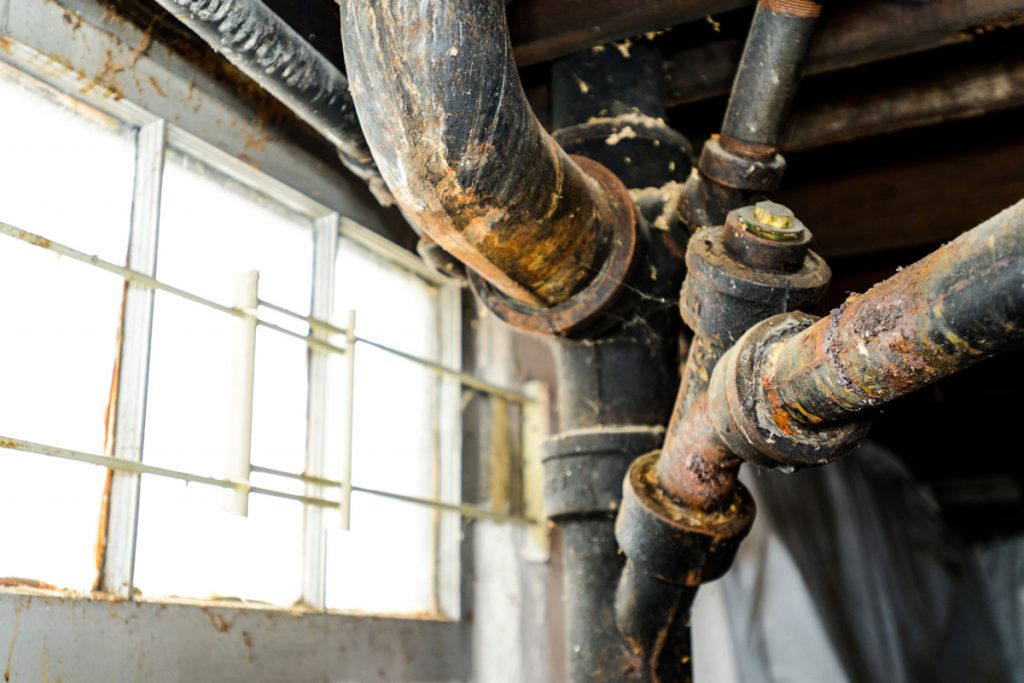While for some homeowners basement leaks are of little concern, for others they are downright upsetting. The fact of the matter is that experiencing a leaky basement in your home at some point in time is rather commonplace and explains why there are so many contractors in the marketplace that offer basement waterproofing services..
But to fix basement leaks you need to know why you have a leak in the first place, and that’s where you start.
Fixing basement leaks starts with identifying the source(s) of the leak(s)
While it sounds perfectly logical and even simplistic, the source of any basement leak encountered must be known in order to determine the most appropriate way in which to deal with the problem. For example, if you have a leak under your kitchen sink of which you are unaware, the water that ends up in your basement may convince you that you have a basement leak when what you really have is a plumbing leak. By knowing that the leak is caused by faulty pipes rather than compromised foundation / basement walls will lead you to call a plumber rather than a basement waterproofer. Every basement leak must be rigourously examined as to its exact origin in order to establish the most effective repair solution.
Be Wary! Not all waterproofing contractors will take the time to figure out why and how waters gets into your basement; as a result, many people spend a small fortune waterproofing their homes when simple and inexpensive solutions exist.
If you are sure you have a basement leak, or if the basement has leaked in the past, click on this hyperlink for detailed information on identifying most basement leaks.
How to fix basement leaks
Since you want to know how to fix a basement leak you clearly want water to stop penetrating through your foundation and pooling on your basement floor. To accomplish this task you have three options:
- Keep water away from your foundation;
- Prevent water from coming through the foundation crack or gap through which the water is entering; and
- Plug or seal the hole or crack to keep the water out or your basement.
Keeping water away from your foundation
Here is the logic: if there is no water pressure on your foundation you would never have basement leaks.
The biggest contributor to high water pressure against your foundation is downspouts draining next to the foundation walls. Directing the downspout water discharge to a location 8′ to 10′ away from the foundation will go a long way to reducing the water pressure on your foundation.
If your downspouts are directed underground to your weeping tile system, disconnect them and disperse the rainwater onto your lawn as far away from your foundation as you can.
Prevent water from coming through the foundation
Water penetrates your foundation through cracks and holes in your foundation walls. If water can’t get to these foundation cracks and holes, then your basement won’t leak.
To prevent water from coming through your foundation you will have to waterproof your foundation; this is accomplished in a few simple steps as follows:
- Excavate the area to be waterproofed all the way down to the footing – typically 6.5′ below grade;
- Clean the part of the foundation wall to be waterproofed;
- Apply an elastomeric rubber coating or a peel and stick waterproof membrane to the foundation exterior wall; and
- Backfill the excavated area.
Do you have cracks in your foundation? Learn about quick and inexpensive crack injection.
Plugging / sealing foundation cracks and holes
If you are not up to hand digging the length of your foundation that is leaking you can try plugging or sealing the foundation leak(s) temporarily; the product to use is hydraulic cement. This type of cement is used to patch a leak on the inside of your basement and can be applied even when a crack / seeping cinder block wall is actively leaking.
Note: While this type of basement leak repair is inexpensive and appealing, it is not a long term solution because the hydraulic cement applied to stop the leak is effectively trapping water in the foundation wall which will lead to premature deterioration of the foundation.
